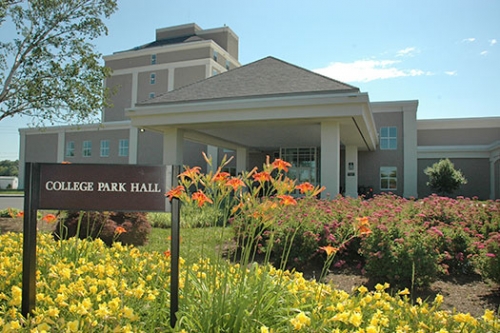REPORTING FRAUD, DEFALCATION (EMBEZZLEMENT) OR ILLEGAL ACTIVITY BY EMPLOYEES, DIRECTORS, OFFICERS, OR VOLUNTEERS
The College seeks to achieve its mission as an educational institution by conducting its affairs ethically and in full compliance with all federal, state, and local laws. Union faculty, administrators, and staff are expected to adhere to high standards of professional and ethical conduct in carrying out their duties. Responsibilities and decision-making are distributed throughout the organization, and thus the College recognizes the need for review procedures for compliance with laws and regulations. As part of that process, the College will protect from retaliation any individual employee, director, officer, or volunteer who has direct knowledge of fraud, defalcation (embezzlement), or illegal actions on the part of a supervisor or employee and communicates that information in good faith for the purpose of correcting the conduct, or while participating in an investigation, as outlined below.
Allegations of defalcation (embezzlement) or actions contrary to law including, but not limited to, theft, fraud, coercion, or conversion (“improper conduct”), based on first hand observations or direct evidence, should be brought to the attention of the Vice President for Administration and Finance (the “Investigator”). Alternative courses of action have been devised for situations involving the key individuals responsible for carrying out this policy. Allegations of defalcation (embezzlement) or actions contrary to law including, but not limited to, theft, fraud, coercion, or conversion (“improper conduct”), against the Vice President for Administration and Finance should be brought directly to the President (the “Investigator”) who shall consult with the Chair of the Audit Committee of the Board of Trustees. Allegations of defalcation (embezzlement) or improper conduct against the President should be brought to the Chair of the Audit Committee of the Board of Trustees (the “Investigator”). The allegation of improper conduct must be reported as soon as possible and no later than one (1) year after the event(s) giving rise to the allegation has occurred unless there is a good cause to explain the delay.
Allegations will be brought to the attention of the appropriate Investigator (or his/her designee) who will document the allegation, seek appropriate assistance and investigate the facts. Care will be taken to maintain confidentiality, to the fullest extent permitted by law and consistent with the need to conduct an investigation, throughout the investigatory phase. The results of this investigation will be brought to the attention of the President (unless the President is the subject of the allegation) and the Audit Committee of the Board of Trustees, and appropriate action, if any, will be taken. The College will take steps to ensure that an individual who comes forward in good faith to report a violation or suspected violation shall not suffer intimidation, harassment, discrimination, or other retaliation or, in the case of an employee, adverse employment consequences at the College provided:
- The individual provides the initial information in a good faith belief that improper conduct has occurred;
- The individual has not deliberately obtained evidence to which he/she does not have a right to access;
- The individual must be truthful and cooperative with the appropriate Investigator or his/her designee to whom he/she is making a report of improper conduct.
However, the College reserves the right to distinguish between retaliation and ongoing performance issues or disciplinary actions related to misconduct by the “whistleblower.”
Last Updated: January 25, 2016
